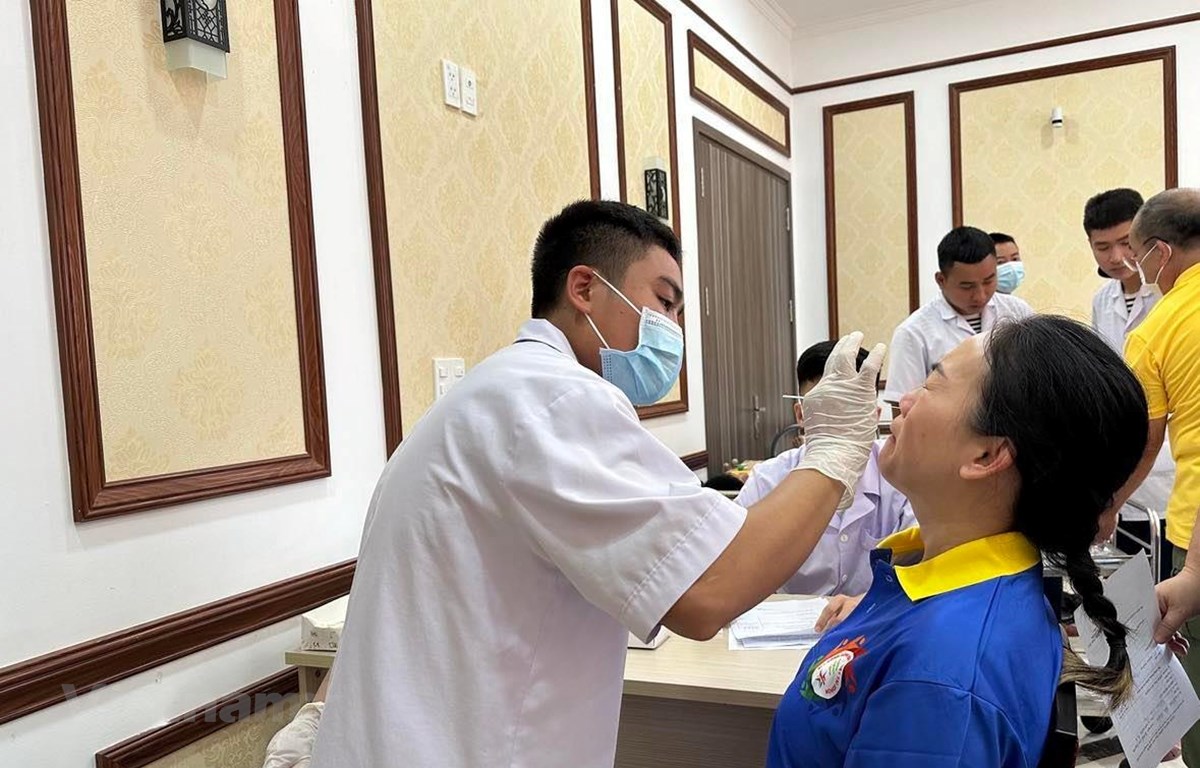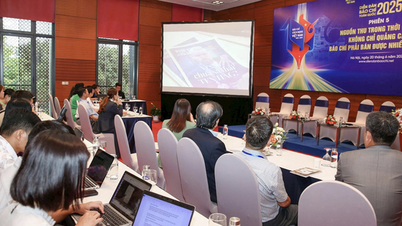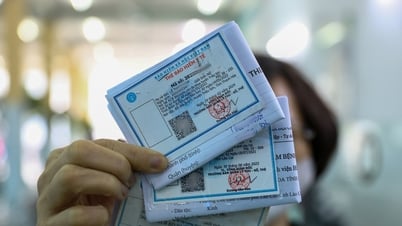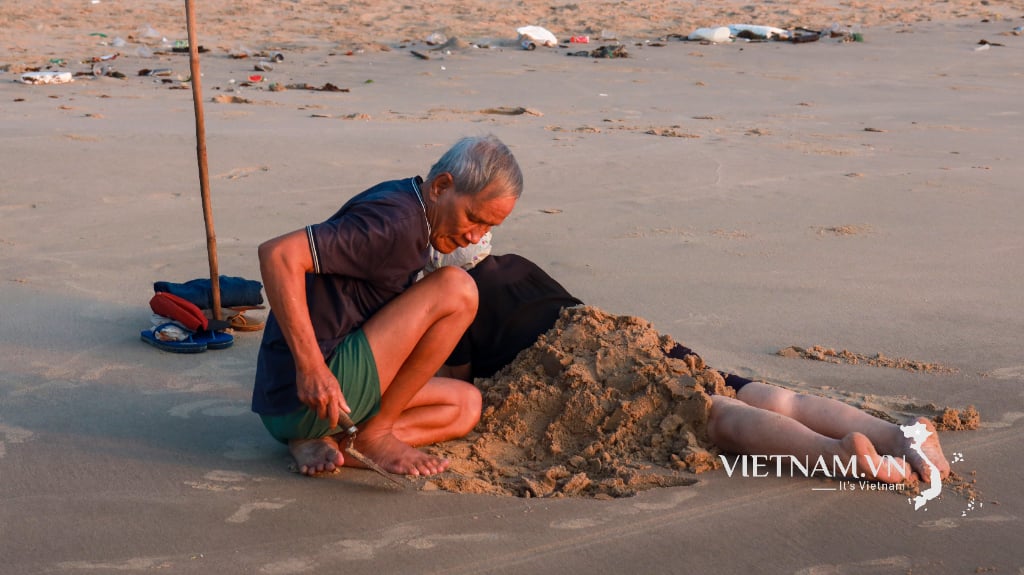Medical staff test people for COVID-19
The Ministry of Health 's COVID-19 prevention bulletin on April 25 said that 2,501 cases were recorded on the day, the highest in more than half a year, and that 1 COVID-19 patient in Nam Dinh died on the day. The number of patients on oxygen also increased to 145.
Before the long April 30 and May 1 holidays, close contact between people will increase, experts recommend taking preventive measures to avoid infection.
Major outbreak unlikely
Currently, many people are expressing concern about the risk of a COVID-19 outbreak after the upcoming April 30 and May 1 holidays?
Regarding this issue, Dr. Ngu Duy Nghia - Head of the Department of Infectious Disease Control (Central Institute of Hygiene and Epidemiology) said that COVID-19 is a respiratory disease, especially at risk of spreading through close contact and crowded places, so the upcoming holiday season may increase the number of cases.
“However, with the current situation, Vietnam is one of the countries with the highest COVID-19 vaccination rate in the world , so the possibility of a large outbreak is unlikely,” Dr. Ngu Duy Nghia analyzed.
According to Dr. Nghia, to prevent the epidemic on a large scale, measures to prevent COVID-19 infection should be implemented regularly and continuously, especially during the upcoming long holiday. Those who have not received enough doses of vaccine as recommended by the Ministry of Health should urgently get enough doses to best prevent the disease.
Since the beginning of the epidemic, Vietnam has had 11,549,186 infections, ranking 13th out of 230 countries and territories, while with the rate of infections per 1 million people, Vietnam ranks 121st out of 230 countries and territories (on average, there are 116,713 infections per 1 million people).
On April 24, 7,886 doses of COVID-19 vaccine were administered. Thus, the total number of doses of vaccine administered nationwide to date is more than 266,152,400 doses.
New sub-variant does not increase severity
Analyzing the variants of the SARS-CoV-2 virus, Master Nguyen Cong Khanh - Department of Infectious Disease Control (National Institute of Hygiene and Epidemiology) emphasized that there are currently many variants circulating in the world. The variants of concern are those monitored and supervised by the World Health Organization (WHO).
According to Dr. Thanh, the XBB.1.16 variant has been found to spread rapidly around the world and is likely to replace previous SARS-COV-2 variants. To date, there is no evidence that these variants cause severe illness or change the clinical symptoms of the disease. Some countries have reported a high incidence of the new variant in children, possibly due to a decline in natural immunity after COVID-19 infection or low rates of COVID-19 booster vaccination.
Answering questions about whether the SARS-CoV-2 virus variants recently discovered in Ho Chi Minh City and Hanoi are worrisome, Dr. Ngu Duy Nghia said that the SARS-CoV-2 variants recently discovered in Ho Chi Minh City and Hanoi are all sub-variants of the Omicron strain. These sub-variants have been previously discovered and circulated in many countries around the world. To date, WHO has included these sub-variants in the group of those who need to be monitored and concerned.
“These sub-variants are not new. Currently, there is no clear information or evidence that this sub-variant increases the severity of the disease,” Dr. Ngu Duy Nghia pointed out.
Associate Professor Tran Dac Phu - Former Director of the Department of Preventive Medicine, Ministry of Health, said that during the upcoming holidays, travel demand will increase, so people need to take preventive measures such as wearing masks, disinfecting and keeping distance in risky areas to avoid increasing the number of cases.
People with suspected symptoms and those in contact with people with suspected symptoms must wear masks. In particular, everyone needs to wear masks to prevent disease for themselves and the community, especially vulnerable groups as mentioned above. This not only helps prevent COVID-19 but also other respiratory infections such as influenza A, influenza B... Anyone with symptoms should also be tested to see if they have COVID-19 or not and finally, they need to follow the vaccination schedule of the Ministry of Health.
Dr. Ngu Duy Nghia emphasized that with the Omicron variant, the COVID-19 vaccine is still effective. To prevent COVID-19 infection, in addition to getting enough doses of the vaccine as recommended, people should take preventive measures such as masks and disinfection./.
According to VNA
Source link








![[Photo] General Secretary To Lam chairs the 14th Central Military Commission Conference](https://vphoto.vietnam.vn/thumb/1200x675/vietnam/resource/IMAGE/2025/6/20/a9d25fc6dd664fb9a3757502f32e5db0)






































![[Maritime News] Wan Hai Lines invests $150 million to buy 48,000 containers](https://vphoto.vietnam.vn/thumb/402x226/vietnam/resource/IMAGE/2025/6/20/c945a62aff624b4bb5c25e67e9bcc1cb)















































Comment (0)